Search
Summary 
Loading AI-generated summary based on World History Encyclopedia articles ...
Search Results
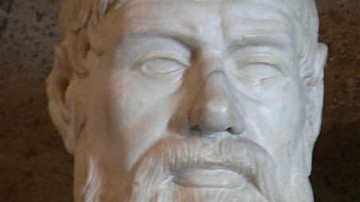
Definition
Pausanias (General)
Pausanias (c. 510 - c. 465 BCE) was a Spartan regent and general who won glory by leading a combined Greek force to victory over the Persians at the Battle of Plataea in 479 BCE. Famously immodest regarding his own talent, he was beset by...
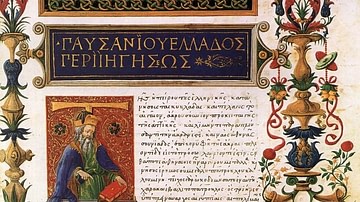
Definition
Pausanias (Geographer)
Pausanias was a Greek author, historian, and geographer of the 2nd century CE who journeyed extensively throughout Greece, chronicling these travels in his Periegesis Hellados or Description of Greece. His ten volumes of observations are...
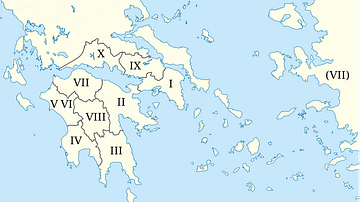
Image
Pausanias' locations in his Description of Greece
Map based on Description of Greece by Pausanias. The map shows which parts of Greece each book in the work describes.
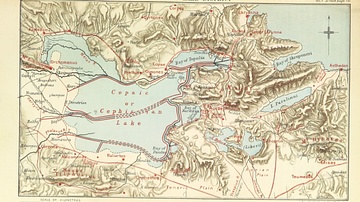
Image
Pausanias' Description of Greece Map
Map epicting locations described in Pausanias' Description of Greece, as found in the version translated and with a commentary by J. G. Frazer. Photograph by the British Library.

Image
Pausanias' Description of Greece
Manuscript of Pausanias' Description of Greece at the Biblioteca Medicea Laurenziana in Florence, Italy, dating from 1485.

Image
Pausanias the Spartan
A portrait bust of Pausanias, the 5th century BCE Spartan general and regent who successfully commanded the Greek forces at the Battle of Plataea in 479 BCE. (Capitoline Museums, Rome)

Article
Pherenike the Female Olympic Trainer
Pherenike (l. c. 388 BCE, also known as Kallipateira) was an athlete from Rhodes who, because she was a woman, could not compete in the Olympic Games and, as a married woman, was not allowed to even watch them. Defying these rules and risking...
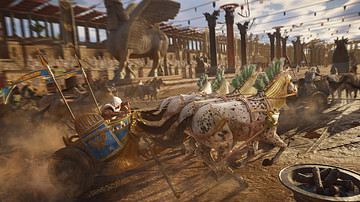
Definition
Cynisca of Sparta
Cynisca of Sparta (b. c. 440 BCE) was a Spartan royal princess who became the first female Olympic champion. Defying the traditional role of women in ancient Greece, she competed in the Olympic Games alongside the men and won. Her triumph...
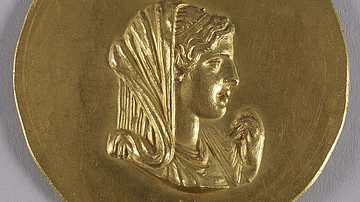
Definition
Olympias
Olympias (c. 375-316 BCE) was the second wife of Philip II of Macedon (r. 359-336 BCE) and the mother of Alexander the Great (r. 336-323 BCE). Olympias was the driving force behind Alexander's rise to the throne and was accused of having...

Definition
Cadmus
Cadmus is a Phoenician-born prince and the founder and king of Thebes in Boeotia in Greek mythology. He travelled to Greece from his home in Tyre in search of his sister Europa who had been kidnapped by Zeus. His rescue mission was abandoned...